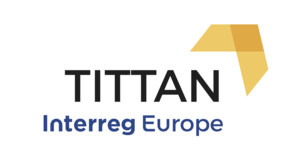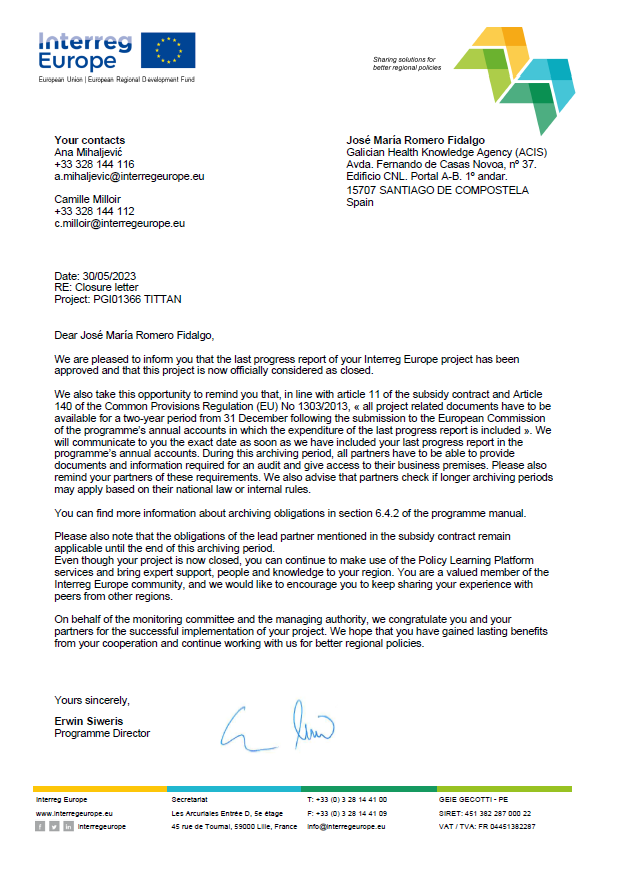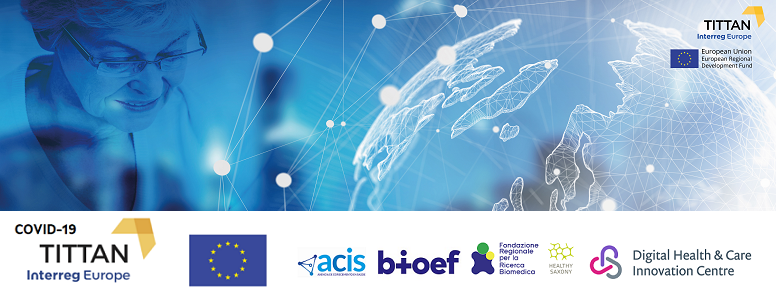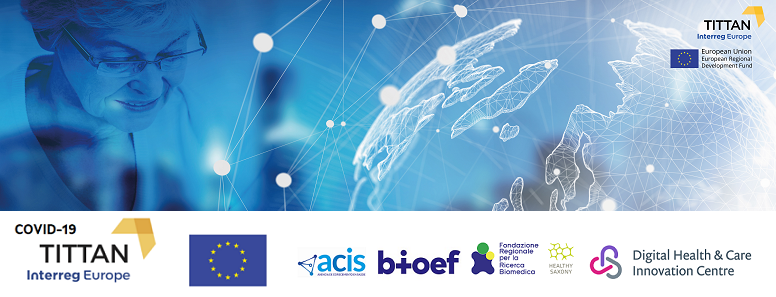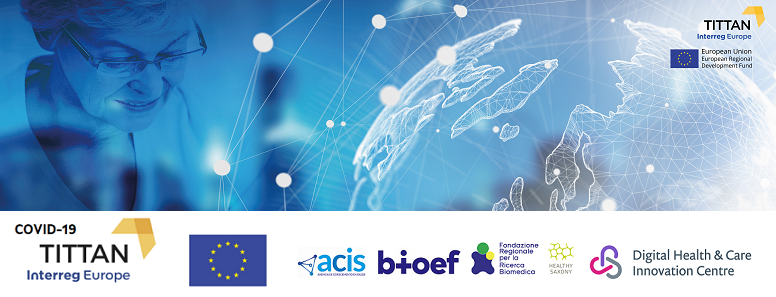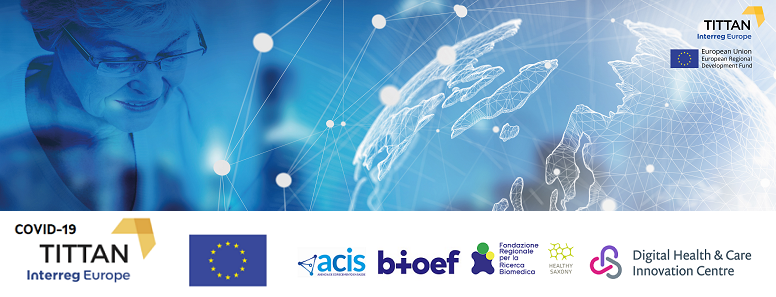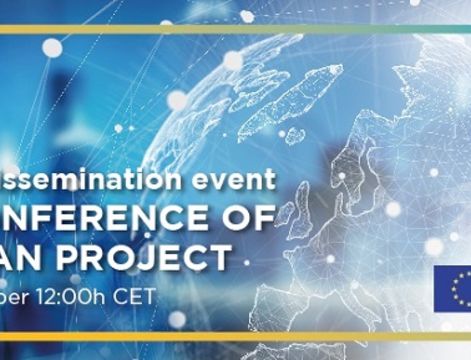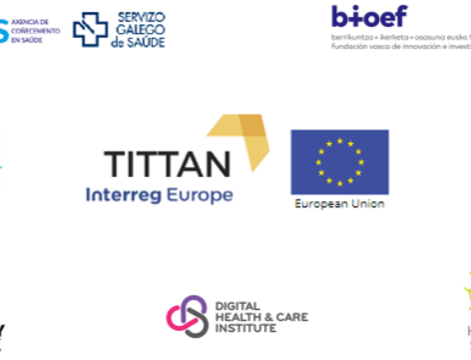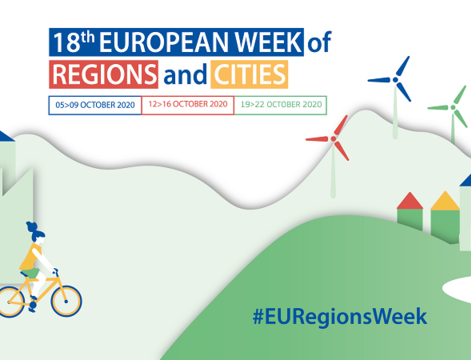The TITTAN project has been active for well over a year now, and the week commencing the 2nd of October 2017 marked the fourth interregional workshop held since the project opened in September 2016. The main workshop, held at the Royal College of Surgeons in the beautiful Capital City of Scotland, Edinburgh, lasted until the 4th of October. It was a jam-packed programme full of fantastic learning opportunities for all the partners involved in the project and an opportunity for the Scottish partners to showcase the myriad of work going on in digital health in their region. Healthy and active ageing was a key feature of the workshop and all the partners shared their best practices with the wider audience present. The health minister for Scotland, Shona Robinson also gave a talk about the upcoming Digital Health and Care Strategy due to be released next year and gave an insight into this.
Following the interregional workshop, various partners remained in Scotland for further learnings at the opposite side of the country in Glasgow, for the remainder of the week. Here, the partners were firstly taken to the Technology Innovation Centre (TIC) in the heart of the city which sits at the centre of the ‘innovation corner’ as the region of Glasgow is often referred to.

It was there, in the City Observatory on the 7th floor of the TIC, that the group were given further insight into the work that the Digital Health and Care Institute (DHI) does to support heathy and active ageing in Scotland. They were introduced to the DHI’s model of innovation and given some practical demonstrations of cutting edge projects that are currently underway with the innovation centre. They were also shown the fantastic adaptable social housing that is being built by the BlackWood Group and how the tenants who often have varying levels of disabilities are trained to use digital tools to live more independently and communicate with staff if and when they need to. The group were taken on a bus to Kilmarnock, a short drive outside the city of Glasgow to learn about the work that WG13 do to support people in their local community to use digital tools to their advantage. WG13 have worked in partnership with the third sector and statutory services to house a virtual home environment with interactive Technology Enabled Care (TEC), allowing people to experience how TEC could support them in their own home.
 A presentation from the team at ALLIS (A Local Information System for Scotland) gave an insight into how to make information about local sources of support more findable for people in the community ang gave us some inspiring stories about the older people who have benefited from this service. On the final day of the trip the remaining partners were taken to Cumbernauld, another area outside the city centre of Glasgow where they were given a fanstastic tour of the Fire and Rescue Service Training Centre. This is the centre where all staff working within the fire and rescue service must come to undergo training to ensure they are competent for the job which can of course be very diverse. One element of this remarkable place, was a purpose built ‘safe and well house’ which is a training tool to support fire fighters to spot the sign of dementia in the community and to work alongside care providers to ensure that the older people are offered technology enabled care solutions which suit their needs and allow them to live as independently as possible.
A presentation from the team at ALLIS (A Local Information System for Scotland) gave an insight into how to make information about local sources of support more findable for people in the community ang gave us some inspiring stories about the older people who have benefited from this service. On the final day of the trip the remaining partners were taken to Cumbernauld, another area outside the city centre of Glasgow where they were given a fanstastic tour of the Fire and Rescue Service Training Centre. This is the centre where all staff working within the fire and rescue service must come to undergo training to ensure they are competent for the job which can of course be very diverse. One element of this remarkable place, was a purpose built ‘safe and well house’ which is a training tool to support fire fighters to spot the sign of dementia in the community and to work alongside care providers to ensure that the older people are offered technology enabled care solutions which suit their needs and allow them to live as independently as possible.

The week-long visit was a huge success and the Scottish partners were delighted to have had the chance to showcase their best practices with the rest of the European partners. The best practices which were highlighted were chosen because they demonstrated the theme of citizen engagement with digital technologies and in particular engagement of older citizens.
